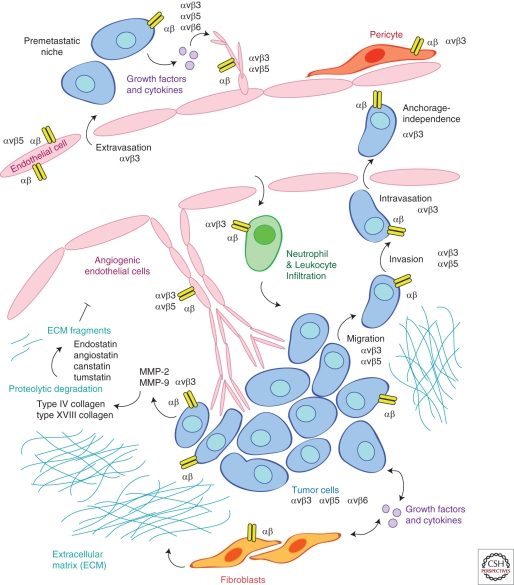Figure 1.
αv integrins expressed on multiple cell types contribute to angiogenesis and tumor progression. Sprouting endothelial cells express a unique profile of integrins that can be targeted to suppress vascular proliferation. Pericyte coverage of maturing blood vessels is influenced by integrin adhesion to extracellular matrix proteins present within the remodeling tissue. Tumor cells change integrin expression profiles to enhance their ability to migrate, invade, metastasize, and survive in hostile environments. Integrin signaling in fibroblasts directs synthesis of extracellular matrix proteins and growth factors that flood the tumor stroma. Proteolytic degradation of extracellular matrix proteins creates fragments that can bind to and inhibit the function of integrins expressed by angiogenic endothelial cells. Integrins on inflammatory cells participate in recruitment to sites of angiogenesis and remodeling, and can establish a premetastatic niche to promote metastatic spread to distant sites. In summary, integrin expression profiles of normal cells are distinct to those within remodeling tissues. Because integrin signaling pathways can influence the behavior of multiple cell types involved in angiogenesis and cancer, selective targeting of integrin-mediated adhesion and signaling represents an attractive therapeutic strategy.

